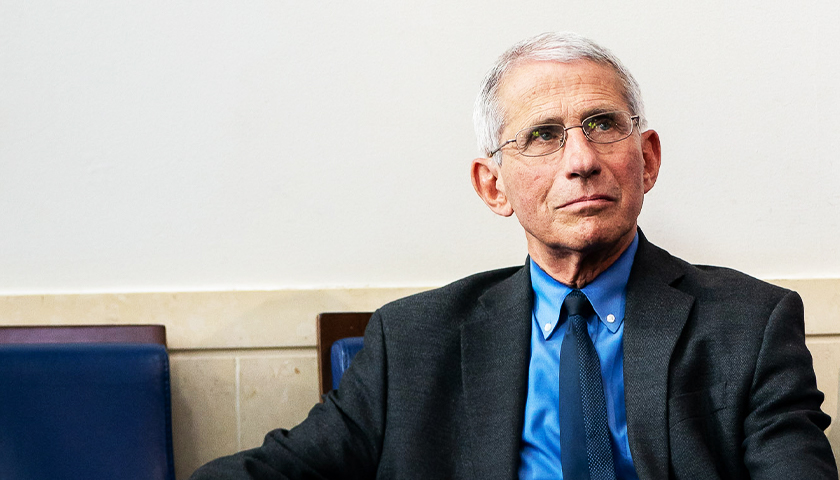News that the Bethesda, Maryland-based National Institutes of Health (NIH) funded Gain-of-Function research in Wuhan, China has prompted certain members of Tennessee’s congressional delegation to condemn Anthony Fauci as a liar and to demand drastic changes.
Representative Diana Harshbarger (R-TN-01) tweeted about the matter on Thursday.
“For months, I’ve been urging Dr. Fauci to come clean about the fact that NIH funded gain-of-function research in Wuhan. Yesterday, NIH finally admitted it,” Harshbarger wrote.
Harshbarger, in her tweet, linked to a Washington Examiner column she wrote in June urging Fauci to tell the truth.
Senator Marsha Blackburn (R-TN) tweeted Thursday that “Fauci lied to Congress. He knew we were funding gain of function research, and he lied about it. This admission is long overdue. #FauciLied.”
Later that day, Blackburn tweeted that “Fauci lied, Americans died. #FireFauci.”
Senator Bill Hagerty (R-TN) also offered his thoughts on Thursday.
“NIH now admits Dr. Fauci misled Congress and the American public,” Hagerty tweeted.
“The agency he leads did in fact fund gain-of-function research at the Wuhan Institute of Technology. He should resign immediately.”
William Bensur, spokesman for Representative Tim Burchett (R-TN-02), told The Tennessee Star via email Thursday that “Burchett believes the government must stop sending money to China for this type of research.”
“We should have never sent this funding there in the first place. The Chinese Communist Party is a bad actor and no friend of the United States.”
Staff for Representative Charles Fleischmann (R-TN-03), Representative Scott DesJarlais (R-TN-04), Representative John Rose (R-TN-06), Representative Mark Green (R-TN-07), and Representative David Kustoff (R-TN-08) did not return The Star’s requests for comment before Thursday’s stated deadline.
Blackburn this week announced she is co-sponsoring legislation to place a moratorium on Gain-of-Function (GOF) research, which many believe played a role in the outbreak of COVID-19.
GOF experiments enhance the severity or transmissibility of a virus or other biological agents. NIH staff have condoned such research “to help us understand the fundamental nature of human-pathogen interactions, assess the pandemic potential of emerging infectious agents and inform public health and preparedness efforts.” The NIH staff have, however, acknowledged major “biosafety and biosecurity risks” that warrant meticulous oversight.
The U.S. Agency for International Development (USAID) and the Defense Threat Reduction Agency (DRTA) have provided grants in the past to EcoHealth Alliance, a company that has engaged in such risky research in partnership with China’s Wuhan Institute of Virology (WIV) where the novel coronavirus is theorized to have originated.
– – –
Chris Butler is an investigative journalist at The Tennessee Star. Follow Chris on Facebook. Email tips to [email protected].








